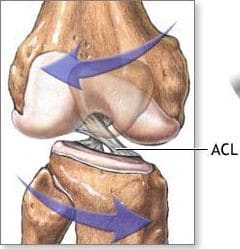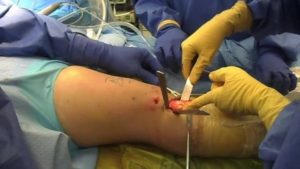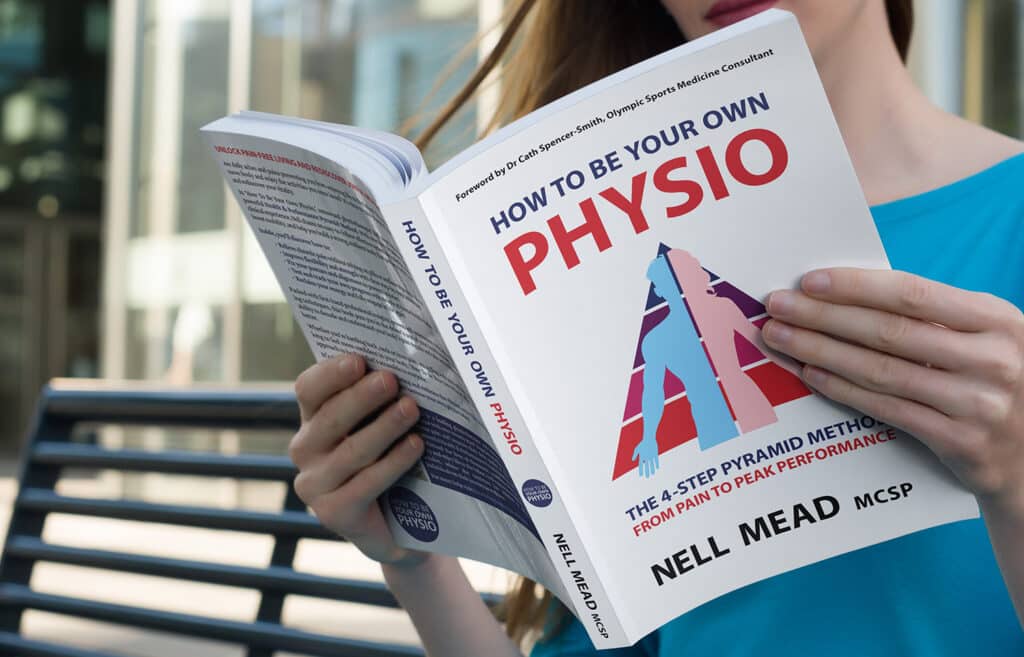
How I treat knees in my physio clinic – and why my knee physiotherapy is different!
Knee pain can be debilitating, and is incredibly common.
If you’re looking for anterior cruciate ligament (ACL) physiotherapy, and need a therapist who is thorough and thinks outside the traditional physiotherapy box, then look no further!
Get in contact
Just call my London team on
0207 175 0150 or use the form below and let me help you get better.
Just call my London team on 0207 175 0150 or use the form here.
The anterior cruciate ligament (ACL) is one of the key ligaments in the knee. Its main role is to provide proprioceptive feedback to the brain about the position and movement of the knee joint. This allows the brain to coordinate the surrounding muscles to stabilise and protect the knee.
I tend to think of joints as having three lines of “defence” (which possibly comes from my lacrosse days!) The first line of defence is your muscles, which need to be strong and flexible, and able to produce power and active control, and adapt to the unexpected. The second line of defence is your ligaments and joint capsule, which support the muscles; and the third line is the shape of your bones. If one of your defenders is compromised, then the others need to step up to compensate.
ACL tears commonly occur during sports like football, rugby and skiing due to sudden changes in direction or landing from jumps, or through tackles or accidents in which the foot is fixed and the body moves over your shin. The ACL can become damaged when the knee joint is not adequately supported by the muscles in these situations.
Not every ACL tear requires surgery, though most do. Around a third will respond well to “conservative treatment ” (i.e. physiotherapy), a third will need surgery fairly soon after injury, and the remaining third will opt for conservative treatment at first, but ultimately end up having surgery. But unless there are exceptional circumstances, most people should look to have some physio treatment first, even if only to prepare you for surgery. Patients who have undergone pre-operative physiotherapy tend to do much better after the surgery.
The first thing to expect is that we’ll be having a long chat! I need to understand exactly how you damaged it, and what your symptoms are – are we looking at pain, swelling, giving way etc. I also need to understand what you’re hoping to be able to do with it! For example, are we aiming to get you back to being able to walk to the shops; or do you want to be able to play full-contact rugby or ski moguls?
Next, I’ll be carrying out a thorough assessment to understand the extent of the ACL injury and identify any weaknesses affecting knee stability. Within the limits of your discomfort, we’ll test your leg strength, balance and flexibility, to help identify which structures need targeted treatment. For example, muscles may need strengthening or flexibility improved to better support the knee.
Working this out may involve imaging such as X-ray or MRI; and we will definitely talk to other specialists. This will probably primarily be an orthopaedic knee surgeon, but depending on what else we find, we may include a radiologist, a neurologist, a sports doctor or a rheumatologist. If you do not already have a trusted knee surgeon then I can make recommendations.
Specifically what we do when we undergo physiotherapy treatment for an ACL tear depends on our starting point and our goals. However, in general we will initially focus on reducing pain and swelling, and restoring normal movement patterns.
As you progress, the focus will move towards improving leg strength, balance, proprioception and coordination, aiming to enhance dynamic knee stability from the surrounding muscles and tendons.
Landing, agility and technique training helps retrain normal movement patterns; and in the later stages of rehab we will look to integrate your whole body into your treatment – it’s never just about the knee!
If surgery is required, we will go through prehab which prepares the knee joint structures for the operation; and we will then continue post-op to restore function and enable return to sport. ACL surgery is serious and you should be looking at 9-12 months of post-op rehab.
Teamwork between doctors and physios is key to success in this situation if you’re to make the best possible recovery – but don’t forget that the most important member of the team is you!
Follow-up sessions if required are usually an hour – it’s important to me to be very thorough when it comes to anterior cruciate ligament (ACL), as I want to be the last knee physiotherapist you need.
Learn more about the following knee physiotherapy I provide
Where i share my logical and simple formula to help you improve your own body. See all my acl physiotherapy related videos.
As a leading ACL physiotherapist in London, I regularly write about injuries, treatment and assessment techniques.

Knee pain can be debilitating, and is incredibly common.

If you play hockey, football, rugby or go skiing then you’re more likely to damage your ACL – but what is an ACL, and how can you avoid an injury?

Sometimes, surgery is unavoidable. In which case, how can you get the best from your surgery?

Knee pain can be debilitating, and is incredibly common.
Simply fill in the form and my team will call you
Quick Links
Address
Longcroft House
2-8 Victoria Ave
London
EC2M 4NS
Are you tired of quick fixes that leave you back at square one? Ready to take control of your health with evidence-based strategies?
My book isn’t just another health tome – it’s your ticket to understanding your body and conquering both niggles and long-standing symptoms.
